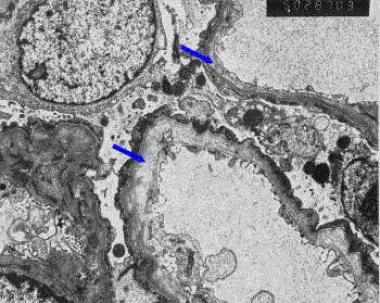What is analgesic nephropathy?
What is analgesic nephropathy? In this article we will describe what is analgesic nephropathy. It is a condition characterised by damage to the kidneys due to long-term or excessive use of certain pain medications; particularly analgesics like nonsteroidal anti-inflammatory drugs (NSAIDs) and combination analgesics containing phenacetin, aspirin, or acetaminophen. Note. NSAIDs can affect the kidneys […]
What is analgesic nephropathy? Read More »



